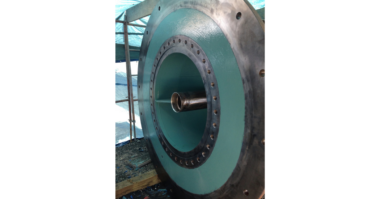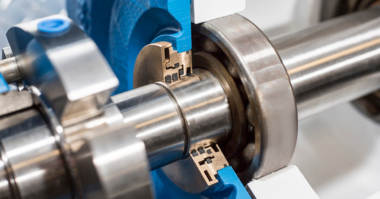In nearly every industry, lost water is essentially lost money. Industries and municipalities must replace lost water, which involves additional treatment and transportation costs. Mechanical seals play a crucial role in water conservation, especially in industrial applications and water infrastructure systems. Here’s how:
- Leak Prevention: The primary purpose of a mechanical seal is to prevent leaks in rotating equipment like pumps, mixers, and agitators. By efficiently sealing the gap between the rotating shaft and stationary pump/mixer housing, mechanical seals ensure that water and other fluids are confined to their intended pathways, reducing wastage due to leaks.
- Reduction in Process Water Consumption: In some industries, water is used as a seal flush fluid for various equipment. Mechanical seals, especially advanced ones with optimized designs, can operate with less flush water or even allow for the use of alternative flush fluids. This directly reduces the amount of fresh water required in industrial processes.
- Minimized Contamination: Mechanical seals not only prevent the outward leakage of fluids but also inhibit contaminants from entering the system. By keeping the water in closed systems free of contaminants, the need for extensive water treatment or disposal can be reduced, conserving both water and the resources required for treatment.
- Extended Equipment Life: Properly maintained mechanical seals can extend the lifespan of equipment. This means fewer breakdowns and fewer unanticipated discharges of water during equipment failures or replacements.
- Support for Water Recycling: In many industries, water recycling and reuse practices are gaining traction. Mechanical seals play a pivotal role in ensuring that water within closed-loop systems remains uncontaminated, making it easier to treat and reuse.
- Reduction of Wastewater Volume: By minimizing leaks and facilitating the reuse of water in industrial processes, mechanical seals help in reducing the volume of wastewater generated. Less wastewater means a lower burden on treatment facilities and less freshwater required to supplement the water lost as waste.
- Support for Efficient Water Infrastructure: In municipal water supply and distribution, mechanical seals in pumps and related equipment ensure efficient transportation of water with minimal losses. As aging infrastructure is upgraded, the incorporation of high-quality seals can make a marked difference in water conservation.
- Conservation of Energy: Though it’s an indirect benefit, efficient mechanical seals reduce the energy required to operate pumps and other equipment. When less water is lost to leaks, pumps work more efficiently, using less energy. Conserving water often goes hand in hand with conserving energy, as a significant amount of energy is used in treating and transporting water.
Mechanical seals play a pivotal role in water conservation by ensuring the efficient and leak-free operation of equipment, supporting water recycling efforts, and enabling more sustainable industrial and municipal water practices. Their importance in the overarching goal of global water conservation cannot be understated, especially in regions facing water scarcity challenges.
Looking for a Sealing Solutions Provider?
SEPCO has sealing solutions for many applications, even those with the strictest standards and the most challenging environments. They have decades of experience in providing solutions across multiple industries. SEPCO can help.





Comments